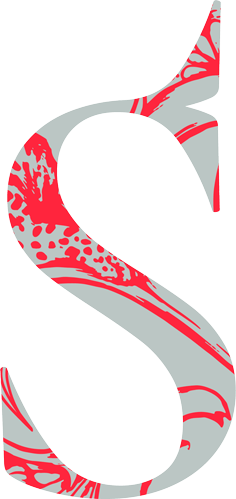…and the unplayable piano
I feel like giving Tim Harford, the British economist and journalist a big hug and a kiss right now. Social distancing measures and travel restrictions aside, I owe him a big thank you.
Last year I watched his TED talk on How frustration can make us more creative . I was struck by his anecdote about the ‘unplayable piano’ and his theory that frustration and messiness can make us more creative. (If you haven’t seen it, I recommend you watch it after reading this – see link).
I was so taken with his theories in fact, that I used it in a presentation to our staff at our annual retreat late last year. My message to the team was to embrace the messy, scary, difficult moments, as these were the moments in which we can do our best creative work. I wanted our team to think beyond the realms of interior design, to realise that as designers we have a wonderful gift called creative intelligence, and our role is to use that wisely.
Our purpose at Siren is to use our creativity to help businesses care for the planet – and so in line with that, I wanted our team to realise that we needed to change our perspective, seeing those frustrating, unplayable piano moments in life as our moments to shine.
Be careful what you wish for… little did I know how important these words, and this sentiment would become.
Playing defence
I’m a member of the global leadership community, YPO. Early this year, in discussion with my YPO network, I realised that this coronavirus thing was going to have a big impact. It really was a pandemic, and it was about to hit us in a way that we’d never seen before.
I started to go into action, calling everyone I knew and warning them of things to come. Many people thought I was overreacting, but I knew we had to act fast because of everything I was hearing, this thing was about to hit us like a tsunami and none of us were ready. I called my whole team, we began to put defensive measures in place to prepare for the worst.
Like everyone else, once the reality of the pandemic hit us, it became quite overwhelming and exhausting. I must admit that there were times when I felt like simply closing the doors, shutting everything down, and going home and curling up in a corner.
But we didn’t.
The pivot
Instead we decided to do the most counter-intuitive thing. In the midst of the storm, I was in a discussion with our board, when Penny, our Singapore director said: ‘Mia, it’s our unplayable piano moment’. And that was it. The lights went on in my head, and I knew we could do this.
Instead of playing defence all the time, we had to shift our tactics and play offence. We had to embrace the messiness, and the disruption and disorder and use it to pivot.
The first steps to do this though were to get basic things in order so that we could free ourselves.
After getting all the logistics in place so our teams could work from home, we then needed to ensure they felt safe. Times were crazy, a lot of the pipeline of work had frozen up, and I realised that many of our team feared for their jobs.
Thankfully, in Australia, the government introduced the JobKeeper allowance which meant there was a safety net. In addition to this, one of our studios was at the low ebb in the project cycle, and came into the crisis with a small pipeline of work, so we chose to guarantee the wages of that team for two and a half months – work or no work.
That sounds like a crazy move. Why would we guarantee wages when we can’t guarantee the work will be there? Why burn through cash, when we could put it away and just ride things out?
It’s all about the unplayable piano moment.
Embrace the disorder
We decided to embrace the disorder. I realised that we needed to ensure that our people felt safe and cared for, and had some certainty. By providing this shelter and safety of sorts, it then meant that we could all put our energy into what we do best. Put our focus on our true purpose – to use our creativity to help businesses care for the planet – backed by our mission to enable people to thrive.
It’s now time to put our words into action on a whole new level. Creative thinking has much to offer in times like these. In some ways it holds the key.
I feel like I’m in start-up mode again, and it’s liberating and exciting. It’s an opportunity for us to break down old boundaries, re-think our models, and reinvigorate our built environment.
It’s time to create places for purpose.
By Mia Feasey, CEO & Founder, Siren Design


